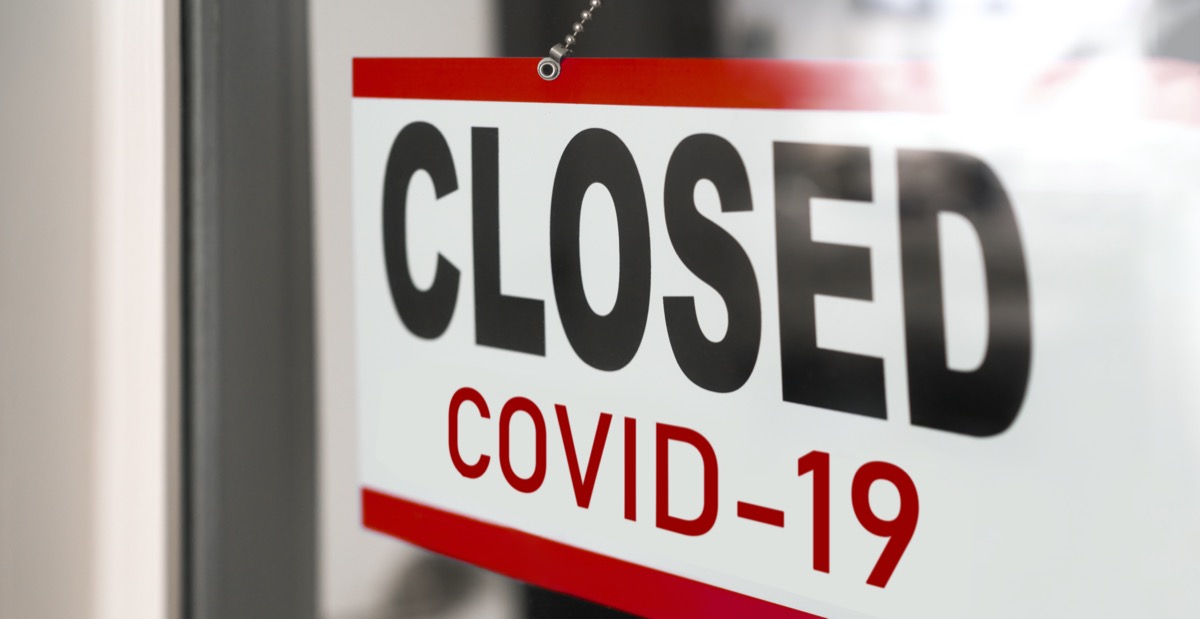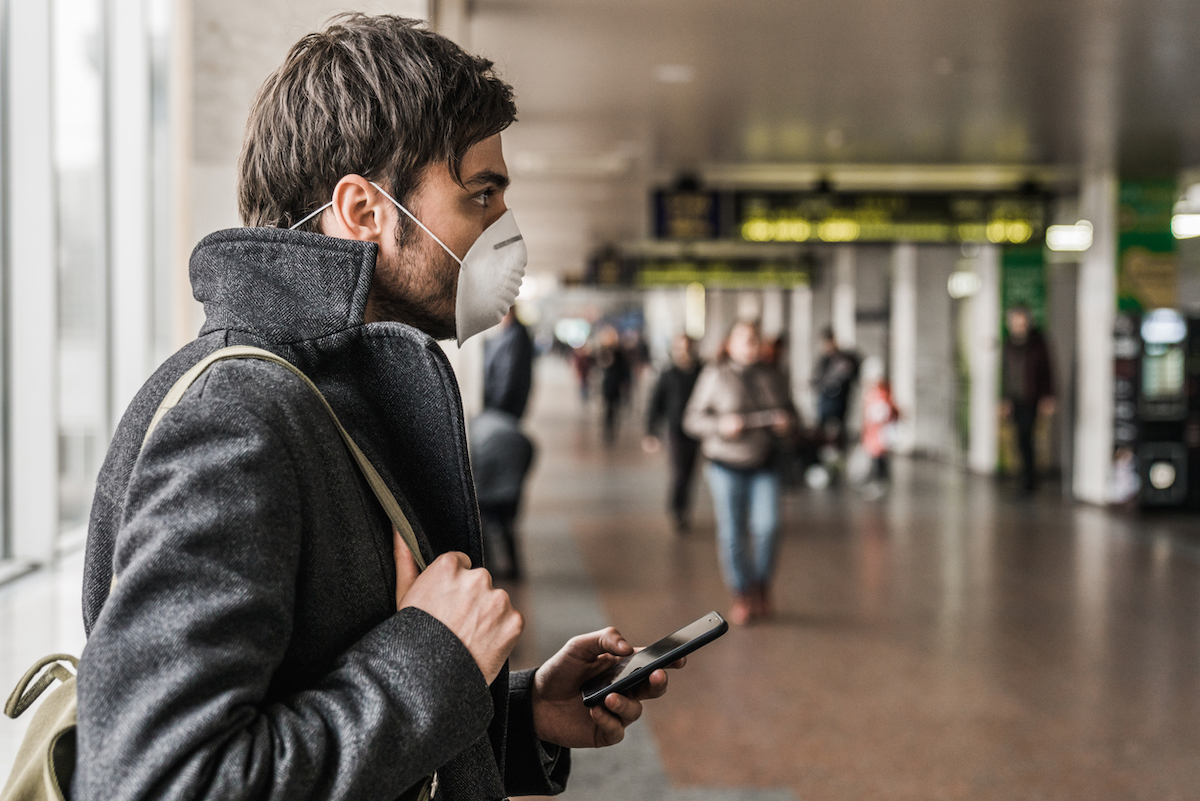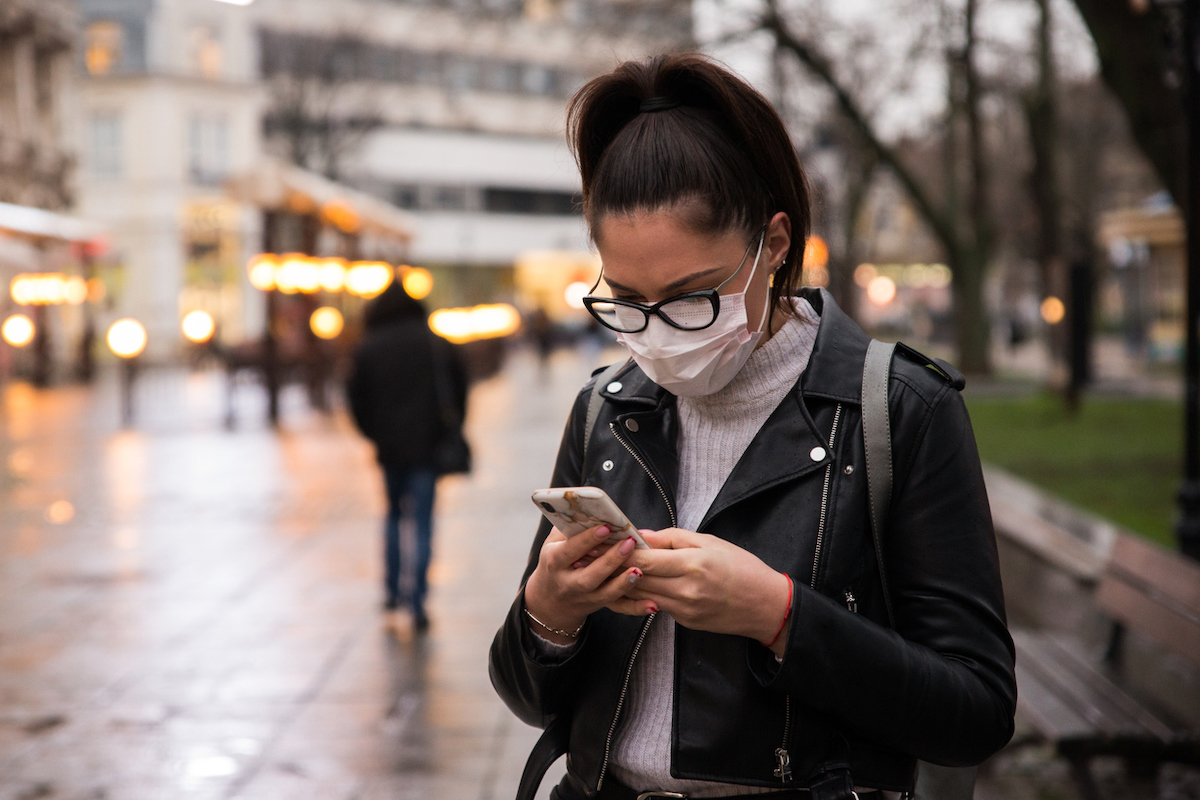After a two-month suspension, Los Angeles reopened outdoor dining over the weekend, and indoor dining will return to New York City on Feb. 14. However, Osterholm doesn’t think these changes will last. On Jan. 31, Osterholm told NBC he predicts that “as fast as we’re opening restaurants, we’re likely going to be closing them in the near term.” He noted that the U.S. tends to be good at recovering from catastrophe rather than preempting it. “You know, we’re really good in this country at pumping the brakes after we wrap the car around the tree,” Osterholm said. “What we have to do now is also anticipate this and understand that we’re going to have change quickly.” And for more up-to-date information, sign up for our daily newsletter. Osterholm feels that a surge is imminent with the more transmissible strains of COVID from the U.K., South Africa, and Brazil spreading in the U.S. He cited the U.K.’s struggles to keep the virus at bay as indicative of the U.S.’ immediate future. “England, for example, is hospitalizing twice as many people as we ever hospitalized at our highest number,” Osterholm noted. Other experts have shared similar sentiments. “We need to assume now that what has been circulating dominantly in the U.K. does have a certain degree of increase in what we call virulence, namely the power of the virus to cause more damage, including death,” White House COVID adviser Anthony Fauci, MD, said on Face the Nation on Jan. 24. And for more on controlling the spread of coronavirus, Dr. Fauci Says These 2 Side Effects Mean Your COVID Vaccine Is Working. “The fact is that the surge that is likely to occur with this new variant from England is going to happen in the next six to 14 weeks,” Osterholm predicted. “And if we see that happen, which my 45 years in the trenches tells we will, we are going to see something like we have not seen yet in this country.“ae0fcc31ae342fd3a1346ebb1f342fcb Restaurants will have a few weeks of reprieve with on-site dining but will likely be shuttered again within the window Osterholm anticipates. And for more on the infectious COVID mutations, If You Have These 4 Symptoms, You Might Have the New COVID Strain. “I think right now in advance of this surge, we need to get as many [first vaccine] doses in as many people over 65 as we possibly can to reduce a serious illness and deaths that are going to occur over the weeks ahead,” Osterholm said. Focusing on administering as many initial shots as possible “can really do a lot to reduce the number of serious illnesses and deaths in this next big surge which is coming.” Ashish Jha, MD, dean of the Brown University School of Public Health, told the Association of American Medical Colleges that, in addition to focusing on ramping up vaccinations, another way to limit the damage of the next surge is proper masking. He said the two biggest priorities for policymakers in the coming weeks should be to get as many vaccinations out as possible and to encourage everyone to invest in higher quality masks. And for more on the COVID vaccine, If You’re Over 65, You Shouldn’t Get This New Vaccine, Experts Warn.



